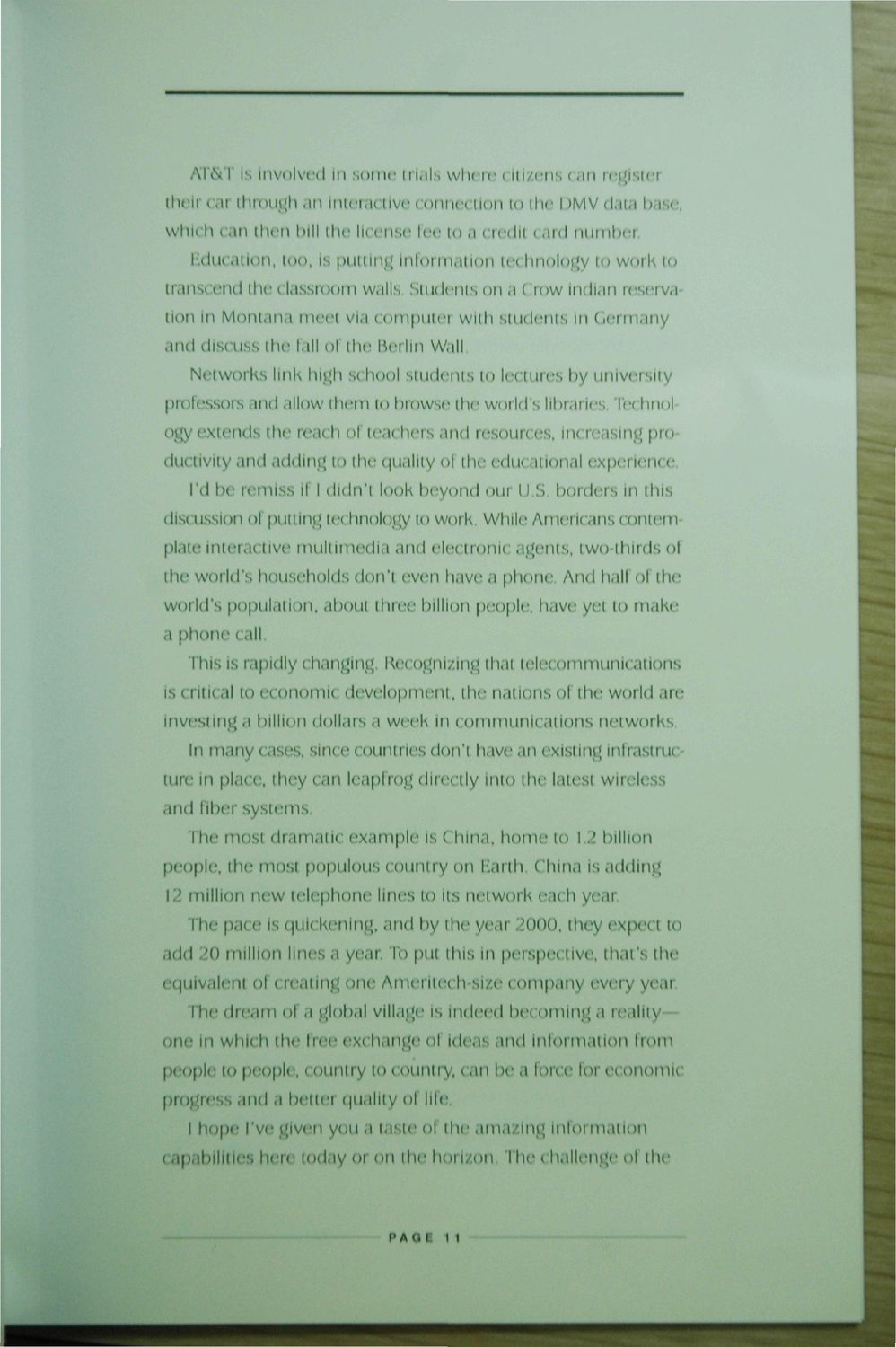| |
| |
Caption: Dedication - Grainger Engineering Library Symposium
This is a reduced-resolution page image for fast online browsing.

EXTRACTED TEXT FROM PAGE:
AT&T is Involved In some trials where citizens can register their car through an Interactive connection to the DMV data base, which can then bill the license fee to a credit card number. Education, too, Is putting Information technology to work to transcend the classroom walls. Students on a Crow Indian reservation In Montana meet via computer with students in Germany and discuss the fall of the Berlin Wall. Networks link high school students to lectures by university professors and allow them to browse the world's libraries. Technology extends the reach of teachers and resources, Increasing productivity and adding to the quality of the educational experience. I'd be remiss If I didn't look beyond our U.S. borders In this discussion of putting technology to work. While Americans contemplate interactive multimedia and electronic agents, two-thirds of the world's households don't even have a phone. And half of the world's population, about three billion people, have yet to make a phone call. This Is rapidly changing. Recognizing that telecommunications Is critical to economic development, the nations of the world are investing a billion dollars a week In communications networks. In many cases, since countries don't have an existing Infrastructure in place, they can leapfrog directly into the latest wireless and fiber systems. The most dramatic example is China, home to 1.2 billion people, the most populous country on Earth. China is adding 12 million new telephone lines to Its network each year The pace Is quickening, and by the year 2000, they expect to add 20 million lines a year. To put this In perspective, that's the equivalent of creating one Amerltech-size company every year. The dream of a global village Is Indeed becoming a realityone in which the free exchange of ideas and Information from people to people, country to country, can be a force for economic progress and a better quality of life. I hope I've given you a taste of the amazing Information capabilities here today or on the horizon. The challenge of the P A Q I 11
| |